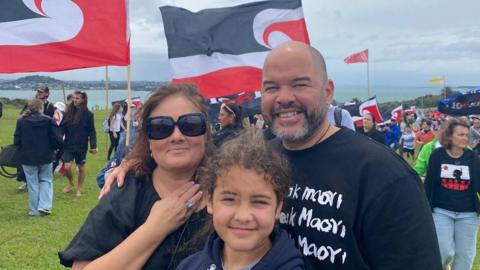Meanwhile, the Waitangi Tribunal, which was set up in 1975 to investigate alleged breaches of the Treaty of Waitangi, notes the bill "purposefully excluded any consultation with Māori, breaching the principle of partnership, the Crown’s good-faith obligations, and the Crown’s duty to actively protect Māori rights and interests".
It also said that the principles of the bill misinterpreted the Treaty of Waitangi and that this "caused significant prejudice to Māori".
The tabling of the Treaty Principles Bill comes following a series of measures introduced by the government that have affected Māori.
They include the closure of the Māori Health Authority, which was set up under Jacinda Ardern's Labour government to help create health equity, and reprioritising English over Māori when it comes to the official naming of government organisations, for example.
While roughly 18% of New Zealand's population consider themselves to be Māori, according to the most recent census, many remain disadvantaged compared with the general population when assessed through markers such as health outcomes, household income, education levels and incarceration and mortality rates. There remains a seven-year gap in life expectancy.
The Treaty of Waitangi is an agreement between the British and many, but not all, Māori tribes, which was signed in 1840.
It is contentious as it was written in both English and Māori - which had only been a spoken language until colonisation - and the two versions contain fundamental differences when it comes to issues such as sovereignty.
While the treaty itself is not enshrined in law, its principles have been adopted over time into various pieces of legislation.
The bill will now be sent to a select committee for a six-month public hearing process.



